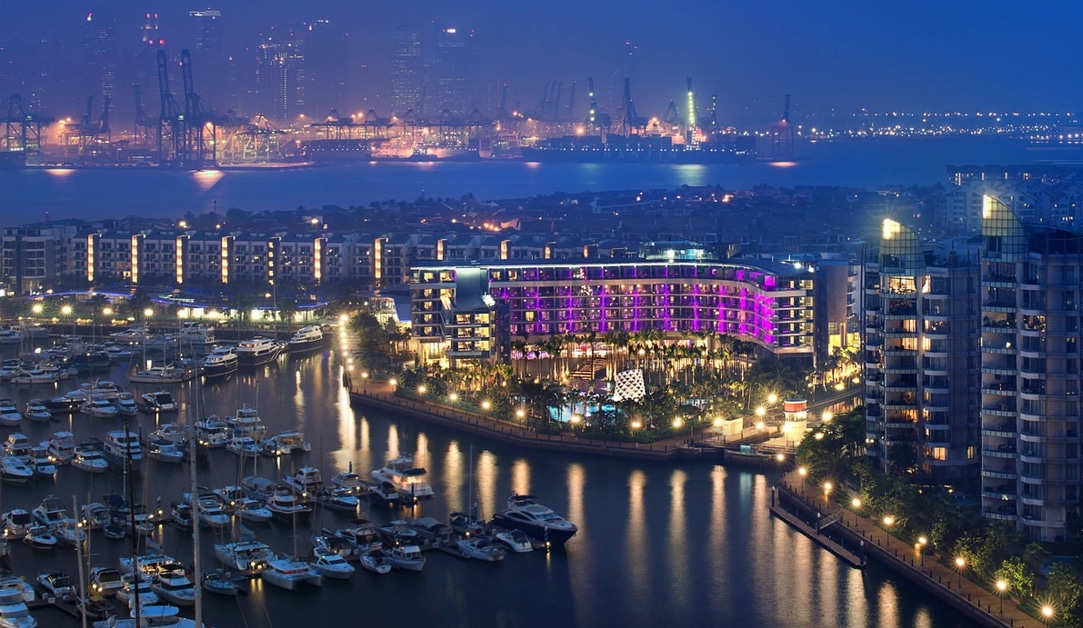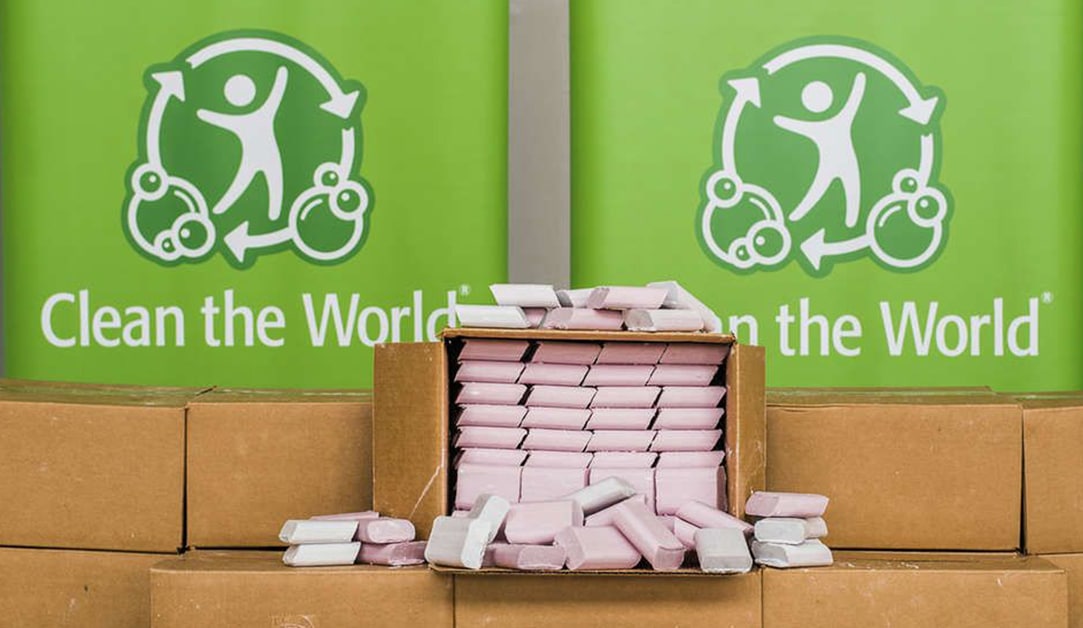Once a niche corner of the travel industry, MICE tourism—encompassing Meetings, Incentives, Conferences, and Exhibitions—has become a powerhouse in global business travel. Far more than just boardrooms and convention halls, it’s now a key economic driver, fuelling destinations and shaping how companies connect with their people and partners.
In 2024 alone, the MICE sector was valued at a remarkable $886 billion, with forecasts predicting it will soar to $1.93 trillion by 2033. Even more striking, business travel—much of it centred on MICE events—has outpaced leisure tourism this year, surging by 19% compared with leisure’s 11% growth.
Looking ahead to 2025, MICE is entering an era of bold transformation. Businesses are finding inventive ways to captivate attendees, create immersive and memorable experiences, and select destinations that offer far more than conventional venues.
From AI-enhanced conferences to incentive trips that blend corporate objectives with adventurous escapes, the future of MICE is dynamic, ambitious, and experience-led.
In this article, we’ll uncover key industry trends, explore sought-after destinations for 2025, and share how organisations can design corporate events that truly engage and inspire.
MICE events and industry trends
1. Events are growing AND evolving
Since their steady resurgence in 2022, corporate gatherings have expanded in scale, with venue sourcing up 89% but formal Request for Proposal (RFPs) rising only 21%—indicating a shift towards less traditional booking methods.
Nearly half of organisations worldwide, including 47% in Asia–Pacific, are prioritising medium to large-scale events. Planning windows are getting shorter, with 60% of venue sourcing now within six months.
Budget visibility remains inconsistent, as almost 40% of organisations are unaware of their total M&E spend, while among those that are, 25% operate on under US$1 million and 13% manage US$1–5 million.
2. The shift towards experiential and immersive events
The corporate event landscape in 2025 is moving well beyond passive gatherings, placing engagement and participation at the heart of every experience. The focus is no longer just on delivering content—it’s on creating moments that connect, inspire, and resonate long after the event ends.
- Multi-sensory experiences
Augmented reality (AR) and virtual reality (VR) are redefining presentations, transforming them into immersive storytelling journeys where delegates step into the narrative rather than watch from the sidelines.
- Gamification and interactive sessions
Expect to see live challenges, collaborative games, and escape room-style activities designed to spark energy, encourage teamwork, and sustain attention.
- Personalised event journeys
AI-driven event platforms will curate bespoke agendas for each participant, aligning sessions and activities with their individual goals and interests.
At the heart of this evolution is human connection. Attendee experience now ranks as the highest priority for organisers, even above safety, logistics, or budget. More than half of planners believe the central purpose of meetings and events is to bring people together—whether that means fostering team unity, strengthening client bonds, or both. This rises to 60% in sectors such as real estate, travel, and finance, where trust and loyalty are best built through face-to-face interaction.
3. Sustainability takes centre stagE
Sustainability has moved from a “nice-to-have” to a non-negotiable in modern MICE planning. Event professionals are placing environmental responsibility at the heart of their strategies, with 65% citing the elimination of single-use plastics as their number one priority. This commitment now extends far beyond catering choices, influencing everything from event packaging and furniture to communication methods.
- Carbon-neutral conferences
The future of corporate events is paperless, plastic-free, and powered by renewable energy. Expect to see digital invitations replacing printed materials, AI-assisted waste reduction, and catering menus built around seasonal, locally sourced produce.
- Green destinations
MICE-friendly cities are stepping up with energy-efficient venues, eco-certified hotels, and sustainable F&B options, allowing event organisers to align with corporate ESG goals while easing the planning workload.
- Regenerative travel
Going beyond “do no harm,” more events will aim to leave a positive legacy. Corporate gatherings will integrate community-focused initiatives such as reforestation projects, wildlife conservation programmes, and cultural heritage preservation.
Ultimately, “green” is no longer a marketing trend—it’s fast becoming the gold standard for how and where business events are delivered.
4. Hybrid and AI-driven conferences are the new standard
Hybrid events are no longer an emergency adaptation—they’ve become a refined and strategic format that merges in-person energy with the reach and flexibility of digital participation. This approach not only broadens accessibility but also creates richer, more personalised experiences for attendees.
- AI-powered networking
Advanced matchmaking platforms will intelligently connect delegates with shared interests or complementary goals, enabling purposeful and productive business conversations.
- Holographic speakers and virtual panels
Industry leaders can now “beam in” via hologram, delivering keynote speeches or participating in discussions without the need for long-haul travel—cutting emissions while keeping global perspectives front and centre.
- On-demand content
Artificial intelligence will generate tailored event recaps, searchable transcripts, and personalised highlight reels, allowing attendees to revisit key insights whenever and wherever they wish.
Hybrid and AI-driven formats aren’t replacing face-to-face gatherings—they’re enhancing them, ensuring that no matter where delegates are, they’re part of the conversation.
5. Specialist organisers remain in demand
While many sales and account management teams are now directly overseeing meetings and events — recognising their value as a strategic tool for client engagement, growth, and retention — outsourcing still plays a major role.
Large-scale gatherings, in particular, often require external expertise, with 80% of events hosting more than 2,000 attendees managed by third-party planners. Executive assistants are also among those who frequently delegate M&E responsibilities, aiming to lighten workloads and tap into specialist skills.
6. Crafting meetings and events that truly connect
Meetings and events are increasingly expected to be more than just functional—they need to be memorable, purposeful experiences that truly resonate with attendees. The focus is shifting away from content-heavy, one-way presentations toward dynamic formats with breakout sessions, cultural touches, and surprise elements that spark conversation and connection.
Forward-thinking organisers are tapping into emerging tools like AI, hybrid event models, and richer multimedia to elevate the experience. Partnering with seasoned professionals who can balance data-driven strategy with creative flair will be key to crafting events that not only impress but also achieve core business objectives.
7. Wellness at the heart of corporate travel
Well-being is no longer an afterthought in business events — it’s becoming a central focus. MICE organisers are weaving wellness into the fabric of their programmes, from mindfulness and meditation sessions to energising fitness classes and thoughtfully curated healthy menus.

Top destinations to host your next MICE event in 2025
1. Dubai, UAE
Renowned as one of the world’s foremost MICE hubs, Dubai combines cutting-edge facilities with exceptional hospitality. The city offers an impressive selection of high-tech convention centres, luxury hotels, and seamless transport links, all supported by a robust infrastructure.
With visa-free access for numerous nationalities, a year-round calendar of international exhibitions, and a dazzling array of dining, shopping, and entertainment experiences, Dubai provides the perfect balance between business and leisure
2. Singapore

With world-class infrastructure, a highly efficient transport network, and an array of forward-thinking event venues, Singapore stands out as a prime choice for corporate gatherings. As a leading centre for finance and technology, it appeals to business groups seeking advanced facilities and a rich blend of cultural influences.
Looking ahead to 2026, the city-state is set to elevate MICE experiences through cutting-edge innovations such as AI-powered personalisation, immersive virtual reality (VR) interactions, and streamlined event logistics. Its commitment to sustainability is also evident through initiatives like the Marina Bay Sands Sustainability Programme.
3. Barcelona, Spain
Barcelona offers a distinctive setting for MICE events, combining striking architecture with a vibrant business environment. The renowned Fira de Barcelona trade fair institution boasts state-of-the-art facilities and adaptable spaces, underpinned by a strong commitment to sustainability.
Supported by robust digital infrastructure, the Catalonian capital is well-equipped to host seamless hybrid events, while giving delegates the chance to immerse themselves in its lively culture and celebrated cuisine.
4. Bangkok, Thailand
Bangkok remains a leading choice for MICE events in Southeast Asia, offering a diverse range of venues from luxurious hotels to vast convention centres. Delegates can enrich their visit by experiencing Thai culture first-hand through activities such as cookery classes, temple visits, and scenic river cruises.
The Thai government places strong emphasis on growing the MICE sector, rolling out initiatives to simplify event organisation and elevate the visitor experience. Coupled with its affordability and renowned warmth of hospitality, Bangkok presents a compelling option for corporate gatherings of every scale.
5. Cape Town, South Africa
Cape Town provides a breathtaking setting for corporate events, framed by the iconic Table Mountain and sweeping coastal views. The city boasts premier conference venues, including the Cape Town International Convention Centre (CTICC), alongside a wide selection of luxury accommodation.
Outside the boardroom, delegates can enjoy outstanding incentive experiences, from wine estate tours in Stellenbosch to wildlife safaris and immersive cultural outings.
How to make corporate events more engaging and impactful
1. Know your audience
A successful agenda starts with understanding who you are speaking to. Identifying your target audience and their needs ensures the content is relevant and compelling. For example, an event for healthcare professionals would require a different approach from one aimed at senior business leaders. Tailoring activities and themes to suit your audience creates greater value for attendees.
2. Curate a balanced agenda
Keep delegates engaged by offering a mix of informative, interactive, and social opportunities. This could include keynote presentations, panel discussions, networking sessions, and team-building activities. Striking the right balance prevents information overload and encourages active participation throughout the day.
3. Choose activities that resonate
Select activities that align with both your event goals and the interests of your audience. In addition to traditional presentations and networking, consider hands-on workshops, live demonstrations, or cultural experiences to add variety and create memorable moments.
4. Harness the power of technology
Innovative technologies can elevate the attendee experience. Virtual reality, augmented reality, interactive apps, and live polls can transform static presentations into immersive and engaging sessions. Ensure chosen tools are user-friendly so all participants, regardless of technical ability, can fully engage.
5. Foster interaction
Encouraging collaboration and conversation keeps energy levels high. Breakout sessions, roundtables, and live Q&A segments give delegates the chance to share insights and form valuable connections. The more involved attendees feel, the more impactful the event will be.
6. Measure and improve
Post-event evaluation is essential. Use attendance data, engagement metrics, and survey feedback to assess what worked well and where improvements can be made. These insights will help you refine future events and continually raise the bar for attendee satisfaction.
Elevate your corporate events with Holiday Tours
At Holiday Tours, we make MICE planning effortless. Our bespoke solutions give travel managers and event organisers the expertise and resources to deliver standout experiences from start to finish.
From pinpointing the perfect venue and arranging premium accommodation to coordinating every travel detail, we handle the logistics so you can concentrate on what matters most — creating an event that inspires, connects, and leaves a lasting impression.
START PLANNING YOUR NEXT SUCCESSFUL MICE EVENT
REACH OUT TO US AT +603 2303 9100 (PRESS 3) OR [email protected]
You may also be interested in:


